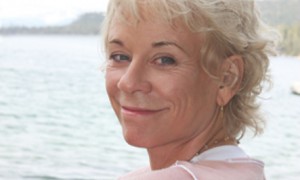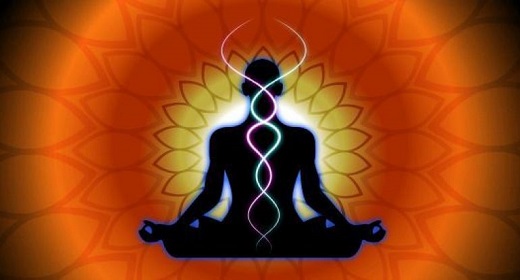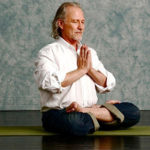Gangaji: “The world is illusion, only God is real. The world is God.” Someone asked me recently about the connection between spiritual awakening and the actual state of the world. I don’t see any disconnection there. The root of political and social activism is freedom, and the root of spiritual awakening is freedom.
Someone asked me recently about the connection between spiritual awakening and the actual state of the world. I don’t see any disconnection there. The root of political and social activism is freedom, and the root of spiritual awakening is freedom.
Freedom is really just the beginning. We need social and spiritual freedom to consciously evolve. We need to be free of the burdens of dogma and social constraints (internal or external) to consciously discover. We need to be free as spiritual beings and we need to be free as human beings inhabiting a planet with other human beings as well as other species.
We are at a critical time, and we have both the capacity and necessity to examine the way we have done things for most of our individual and collective human past. We must tell the sometimes hard truth about what no longer works, however well it may have worked in the past. We have been experts at making war: our internal war, war with what is foreign, with what is other, war with what we disagree with. Our tendency as humans is to attack whatever is either within ourselves or in others that we perceive as threatening. We have the power to destroy and this power is now destroying us, as it is destroying other species and our planet, our home. Our power to conquer has circled back on us.
The true spiritual invitation is a call to surrender. It is a call to open the mind and discover peace. This surrender is neither passive nor active; it is reflective. It is not in opposition to an activist point of view, but it also does not champion an activist view. And yet creative and inspiring activism arises from surrendering points of view and opening the mind to conscious discovery. To be willing to discover what an answer may be, we first must give up our preconceptions of what that answer is. If we cling to spiritual dogma or political and social idealisms, we continue to live lives bound by dogma and idealism, however we may identify ourselves at any particular time.
* * *
At one time in my life I called myself a political activist. I was a non-violent trainer for the Abalone Alliance in the Bay Area. We were protesting the building of a nuclear power plant on an earthquake fault. It seemed like a reasonable thing to protest. We went to San Luis Obispo, California, and held a non-violent protest and were—predictably—dragged away to jail. I spent ten days in jail. It was really valuable time spent with dedicated individuals, and I treasured it. But I discovered something that was disillusioning to me.
This discovery was important, because to discover freedom we need to be disillusioned out of our old ways of seeing ourselves and the world. I discovered that in all of our meetings about non-violence and the danger of the nuclear power plant being built on an earthquake fault, there was a definite glee in our rightness as opposed to our opponents’ wrongness. We were standing up for what we believed to be right, and that was a good thing. But we were also puffing ourselves up at just how wonderful we were! Actually there was more pleasure in the us-versus-them aspect of the protest than there was in the possibility that perhaps the plant wouldn’t get built. And in the end it did get built.
Discovering this self-righteousness (in myself and in my allies) was disillusioning to me because I had a notion that political activism at its pinnacle was really about working for all. I knew that a power plant over an earthquake fault would be non-discriminating in whom it could hurt if there happened to be an earthquake. I was disillusioned, and rather than stay and face the pain and the root of that disillusion, I withdrew from political activism.
When I retreated from political activism, I was judged harshly by those who remained committed to the cause. They felt I was copping out. And maybe it was a cop out, because in a sense my nervous system really couldn’t deal with the war, even the war for peace. It was at that point that my spiritual identity began. I thought I was escaping from the hardness of activism to the sweetness of spirituality. But in the spiritual world I discovered the same us-versus-them paradigm.
My new spiritual cohorts were very self-righteous about political and social activists and anyone else who remained concerned with the world. The dogma stated that since the world is illusion, and since those who were active in the world were just contributing to the suffering in the world, we, as spiritual seekers, were better, or at least more evolved than those trying to fix the problems of an illusory world.
* * *
This either/or dichotomy has to be resolved before we can even discover whether activism or withdrawal from the world (or some combination of each) is our particular path. Certainly not everyone should be an activist, nor should everyone be a spiritual seeker. There is room for all of us, since we are all here, and neither side of the dichotomy need feel superior or inferior to the other.
We all have particular parts to play. As humans we generally get corralled into thinking that we should be doing something that people we admire are doing, or that our family is doing, or that our culture says is right to do.
I know this very well. Growing up in the South I thought I should be as southern women of my era were trained to be. I tried to be that and I failed. It was a lie for me; I wasn’t feminine enough or docile enough or pretty enough. I actually had to cause suffering to the man who had married me thinking I was like that (since I was pretending to be like that), to escape that lie. In the same way it is easy to fall into either a life of activism or a spiritual life just because it is the prevailing sub-cultural life style.
Papaji’s guru, Ramana Maharishi, was probably one of the most inactive beings on the planet. During his lifetime India was in major upheaval. It was the time of Gandhi who was the epitome of social activism. Gandhi was playing his part and Ramana was simply being quiet. People would come to Ramana and say, “How can you sit here removed from everything. There are people suffering. You should be speaking to them about peace, or supporting them in throwing off the yoke of the British.” His reply was, “This is the way it must be. I am being who I am.”
When Papaji was with Ramana, India was going through the even greater turmoil of Partition. Papaji was from the part of India that had been designated Muslim, and he and all of his family were Hindu. Ramana told him, “Go to the Punjab and get your family.” Papaji said to him, “The world is illusion. This is all that’s real. The world is just a dream. Why would I leave your feet? This is where I am at peace.”
And Ramana said, “If the world is all a dream, what is the difference? Go and get your family.” This was a major break-through for Papaji in his realizing the non-duality of the world, illusion, God, and truth. He did go to the Punjab and got his family, barely escaping on the last train out of Lahore. And he did realize that there is no separation. The peace that was revealed in the presence of his Beloved Ramana was discovered to be everywhere.
* * *
To realize that there is no separation is a tall order, but it takes that before we are free to actually follow what we naturally have affinity for, or talent for. At one time I wanted to be a ballet dancer. Maybe I had a little talent as a dancer, but I didn’t have what it took to be a ballet dancer. It would have been absolutely unrealistic to follow that goal simply because my parents thought it would be wonderful, or because ballerinas got to wear such beautiful costumes. At a certain point I had to tell the truth: is this body made for that? The answer was no. Later I had to discover that I was not made to be an idealized version of a Southern woman. Then I had to tell the truth about political activism: is this really, really how I want to live my life? It was how I thought I should live my life, but was it really what I wanted? The hard truth was no.
I was faced with a similar dilemma in my spiritual life: what is it I really want? Do I want the truth, or do I just want more states of ecstasy? When I discovered that what I really wanted was the truth, I was ready to meet my true teacher. He instructed me to stop, to retreat from every concept I had of what is true, what is activism, what is spiritual, what is the world, what am I, what are you – and be left with what remains when everything is released. In order to really let the world into my heart in the deepest, truest sense, I had to be willing to retreat from everything that I thought of as the world–all of my mental, emotional, experiential versions of it.
From being with my teacher I had the freedom to ask myself if I was really made to be an idealized anything. The liberating answer was no. With that answer I could discover what I was made for: free of all idealizations. It is only our ideas that separate us, and without them—for even a moment—we discover that the world is already alive in our hearts. Then we have the choice to open to it all more fully, to retreat from it, or to continue to be at war with it in different ways.
* * *
Our concepts of the world tyrannize us. I am not suggesting that you let your concepts of the world into your heart. I am suggesting that you can retreat from all concepts, especially the world as you think it. Step in closer than your thoughts, and then discover what is already in your heart, in the core of yourself, the deepest part of yourself, without which there would be no you.
I am inviting you to step back from your thoughts of the world to discover what remains when you retreat from all thoughts of the world. Then if the world reappears, it is discovered to be one and the same with what was discovered when there was no world. When you let what is true into your heart, you realize it is your heart that is true. You realize that the world is not separate from that.
This is why we have come together. This is our opportunity. If we remove the dogma from both our spiritual/religious life and our activist/political life, we are left with non-prejudiced seeing. If we don’t have the constraints of what should and shouldn’t be investigated, we can actually tell the truth about what we support, what we want for ourselves and for all of humanity.
What do you want for our planet, for our community? If what you want is peace and cooperation and love, and if you are willing to really not know how that will come about, then your mind will open to discover.














































